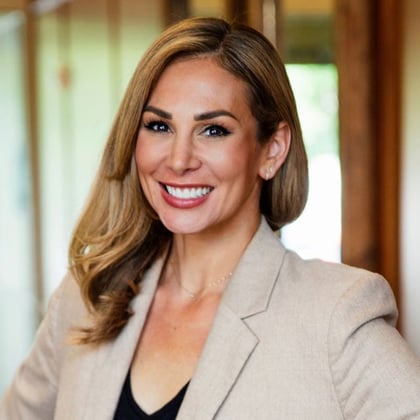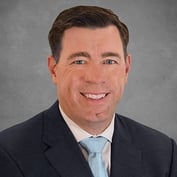There’s little doubt that RIAs want to grow.
But first, “you have to choose how you want to support that growth,” Sara Baker, president of Triad Wealth, tells ThinkAdvisor in an interview.
“Growth equals hiring, or growth equals outsourcing,” is how she describes the two main strategies.
The chief challenge to RIA growth, Baker notes in the interview, is that the advisor must first establish “a core,” built on operating structure, culture and mission, among other essentials, before launching a marketing strategy.
“If you don’t have a solid vision, brand and the right people in place, then you’re going to throw money down the drain,” she says.
Baker, who last month was promoted to president from chief planning and legal officer, was previously Edelman Financial Engines’ vice president of advanced planning strategies.
Triad Partners opened three years ago. Triad Wealth, its sister firm, debuted in summer 2023 to help RIAs grow by providing back-office functions, outsourced marketing, sales support and more.
Triad Partners, which has 55 partner firms with assets under management ranging from zero to $1 billion, is an integrated marketing organization, supporting independent insurance agents. The firm has already been helping partners grow using annuities and insurance.
In the interview with Baker, who was speaking by phone from Kansas City, Missouri, Triad’s base, she also opines on why RIAs should consider selling annuities, depending on a client’s needs.
Here are excerpts from our conversation:
THINKADVISOR: What’s your attitude about financial advisors becoming RIAs?
SARA BAKER: We’re an RIA that works with RIAs. We believe that if you want to be independent and you truly want to control your business, you should become an RIA.
The future is helping, planning and aligning clients with all their life goals. It’s not selling products or insurance. It’s figuring out what they actually want.
What’s your firm’s chief objective?
To help our member firms grow. We provide business development, coaching, outsourced marketing, sales support [and more].
What are the main challenges to growth for an RIA, and how can they be met?
There are a handful. You have to have a strategy [right away] before you start marketing and doing other things to help you grow. This is very much overlooked.
One of the top challenges is not being prepared to hire once you decide you want to grow.
You can be really good at sales and know how to bring folks into a seminar. But growth equals hiring; [alternatively] growth equals outsourcing.
So you have to choose how you want to support that growth.
How do growth and scale differ?
People confuse growth and scale, but those are two very different things.
They think if you’re growing, you won’t need to hire if you’ve scaled your business. That’s inaccurate.
If you’re going to grow and are spending money on live events, that means hiring people.
A lot of firms don’t have the right leader who can manage people or aren’t prepared to hire them.
What are the growth strategies your firm recommends and provides for its partner RIAs?
It varies by firm according to where they are in their maturity. But No. 1 right out of the gate is aligning their business vision and objective, refining their brand, and the way they [refer to] themselves to their clients and prospects.
They’re [already] heavily focused on seminar and digital marketing, which are two really big levers.












 Copyright © 2024 ALM Global, LLC. All Rights Reserved.
Copyright © 2024 ALM Global, LLC. All Rights Reserved.